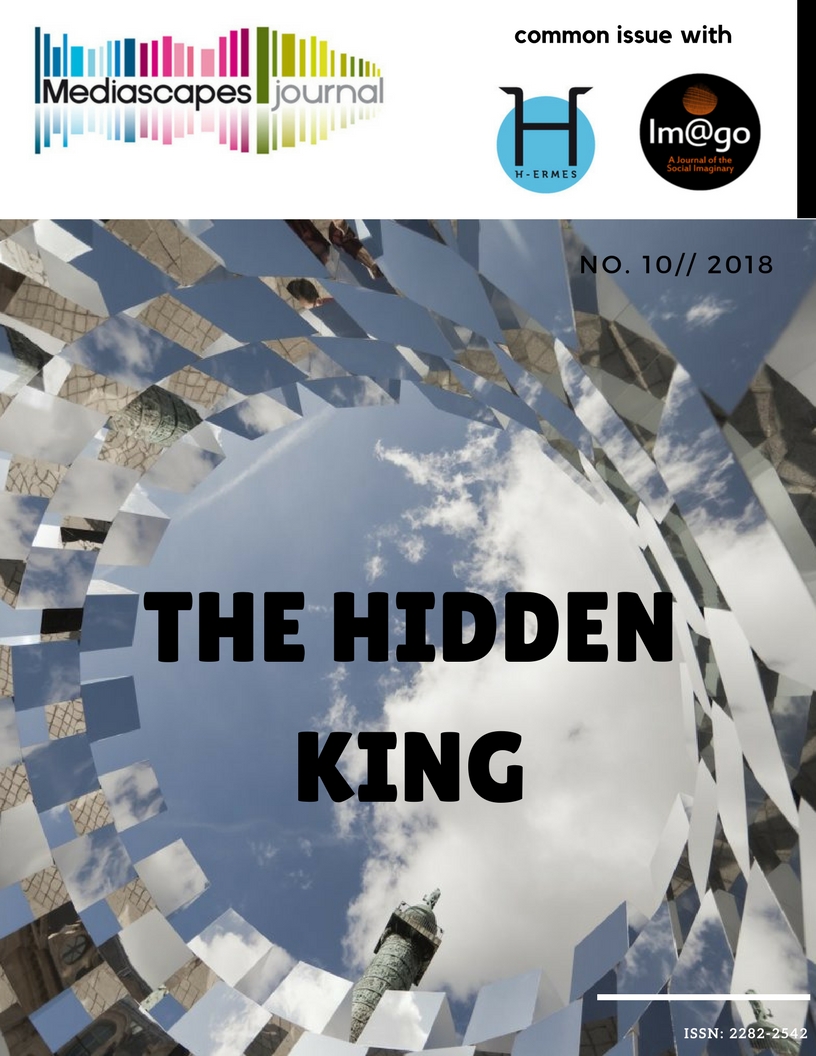Simmel, Benjamin e l’immaginario del flâneur: note sull’ “atrofia progressiva dell’esperienza”
Parole chiave:
modernità urbana, società e intellettuali, medialità, comunicazione di massaAbstract
The goal of this paper is to focus on the heuristic paradigms of the social imaginary of flâneur starting from the considerations fostered in the essay Metropolis and the life of spirit by Simmel. His considerations inspired both Benjamin’s reflections on the flâneur and the analysis of media society outlined by Flaiano as a “customary flâneur”. Hence follows the representation of flâneur as an emotive consequence of the urban sociability as well as a result of the objective hypertrophy of metropolis and incarnation of one of the possible experiential paradigms of modernity. Therefore, the perspective of research is to probe the sociological influence gained by the figure of the flâneur throughout the twentieth century, in accordance with the innovation of communicative practices. To the fore is the significant role played by the informative dimension in the construction of the social imaginary of flâneur: “The replacement of the older relation by information, and of information by sensation, reflects the increasing atrophy of experience”. The replacement and interchangeability of conversational experiences can fuel the flâneur’s dismay before the spectacle society, suspended between narrative fluctuations and semiotic insights. These factors lead up to the collective imaginary of flâneur as a potential Hidden King of modernity and a probable interpretative paradigm of the objectual hypertrophy of our times. The latter was observed and analyzed by Simmel prior to the advent of the liquid society.
##submission.downloads##
Pubblicato
Come citare
Fascicolo
Sezione
Licenza
Gli autori che pubblicano su questa rivista accettano le seguenti condizioni:
- Gli autori mantengono i diritti sulla loro opera e cedono alla rivista il diritto di prima pubblicazione dell'opera, contemporaneamente licenziata sotto una Licenza Creative Commons - Attribuzione che permette ad altri di condividere l'opera indicando la paternità intellettuale e la prima pubblicazione su questa rivista.
- Gli autori possono aderire ad altri accordi di licenza non esclusiva per la distribuzione della versione dell'opera pubblicata (es. depositarla in un archivio istituzionale o pubblicarla in una monografia), a patto di indicare che la prima pubblicazione è avvenuta su questa rivista.
- Gli autori possono diffondere la loro opera online (es. in repository istituzionali o nel loro sito web) prima e durante il processo di submission, poiché può portare a scambi produttivi e aumentare le citazioni dell'opera pubblicata (Vedi The Effect of Open Access).


